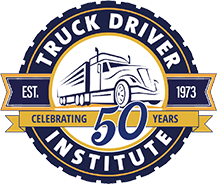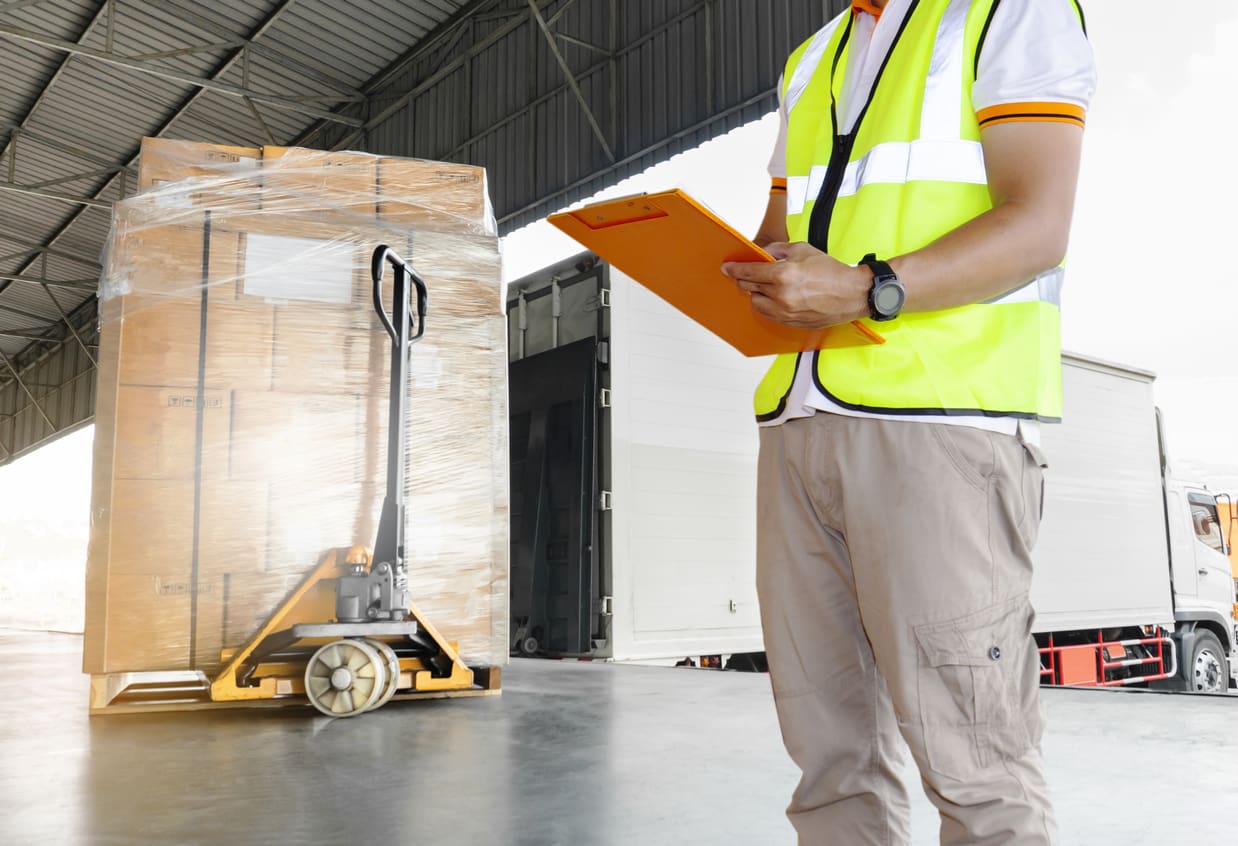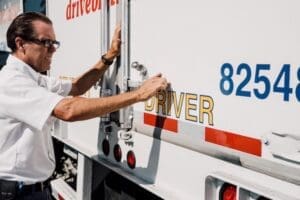What Do Truck Drivers Typically Haul?
What do truck drivers typically haul? Most truck drivers haul food, liquids, products for retail, construction materials, and farming goods. However, you may also end up hauling more specialized items. Truck drivers are responsible for delivering a wide variety of raw materials and goods to individuals, communities, and businesses. You’d be hard pressed to find an industry that did not in some way rely on the trucking business to transport its goods.
Read on to discover what kinds of items truck drivers haul most frequently, as well as some of the more unique goods you might end up delivering as a truck driver.
What Do Truck Drivers Typically Haul?
One of the most exciting parts of being a truck driver is that every day is different. The routes you get to travel, the places you get to see along the way, the hours you keep — these can all change often when you’re a truck driver. Each trip can be a new adventure on the open road.
The type of cargo you haul is another thing that might vary each day when you’re a trucker. Since most trucking companies service numerous other industries, you will likely get the opportunity to transport many different types of hauls.
Typical Hauls
What do truck drivers typically haul? Some kinds of hauls are more common than others. Here are a few examples.
- Perishable items: Some items will expire quickly if not delivered with great speed, such as produce, packaged meat, flowers, and some medications. Perishable goods are often called “hot loads” by truckers because they require delivery to be prompt and on schedule. These items are usually transported in refrigerated trucks to help make sure that the items do not expire while en route.
- Retail goods: Another very common type of truck haul is retail goods. These are products sold in stores that do not have a short shelf life. The exact items in this haul could be clothes, non-perishable food, toiletries, or any other consumer goods usually available in retail stores. You will usually find this type of cargo in what’s called a dry van truck.
- Liquids: There are many different kinds of liquids that need transporting all across the country. If you are a trucker hauling liquid, you might be transporting a food product such as milk or molasses. You also might be carrying oil, liquid petroleum gas, or even cement. Liquid products will be transported in a tanker truck. If you are new to trucking, you will likely not be starting out driving tanker trucks, as these loads can be more challenging to move than retail goods.
- Raw materials: Truckers are not always tasked with delivering finished products to individuals or businesses. Sometimes it’s their responsibility to transport raw materials like steel frames, metal pipes, and other construction materials. These are typically carried on flatbed trucks, as the shape of these transported goods often does not fit neatly into a semi-trailer.
- Farming materials and animals: If you’re someone who enjoys traveling on roads less travelled, chances are that you’ve seen a truck transporting farm goods or animals. There are many types of truck hauls related to the farming industry: oversized loads with equipment like bailers or harvesters; grain, feed, and hay for farm animals; and even the live animals themselves. You will often need experience in farming first before being entrusted with this type of job. A feed hauler, for instance, usually needs to know how to work with grain bins and silos.
Unique Hauls
Hopefully you now know the answer to, “What do truck drivers typically haul?” When it comes to truck driving, however, the word “typical” is relative, because truckers are crucial to the operations of nearly every industry. Although less common, there are other types of hauls that you may find yourself transporting when you’re a trucker.
- Sensitive cargo: Sometimes, truck drivers may not know exactly what they are hauling. That most often happens when truckers are transporting goods for the Treasury Department, military, research institutions, and other organizations related to national security. If your trucking company is responsible for this type of cargo, they will have undergone extensive security clearances and vetting procedures.
- Niche hauls: If you’ve ever watched Shipping Wars, then you know that people need to ship all kinds of unique, strangely shaped, or just plain whacky cargo across the country. Be it fossils, twenty-foot balloon animals, or living tropical fish, there is always a chance you might get to transport a highly unique item along the open road.
- Hazardous materials: Hazardous materials must be transported with great care, as these chemicals can cause great damage to the environment and/or humans. Hazardous materials are most often in liquid form, meaning that they’re transported in tanker trucks. As with transporting any liquid, the liquid might slosh around when the truck starts and stops, so it’s important for truckers to know ahead of time how to act in case of a leak or spill.
- Dry bulk goods: Sometimes truckers transport mass quantities of dry goods such as sugar, sand, or flour. This type of cargo requires a dry bulk tanker. Although these trucks are shaped similarly to tanker trucks containing liquids, they are generally easier for new truckers to handle because the dry goods do not move around as much as the liquid ones. However, dry bulk hauls are generally not as common as liquid tankers.
TDI Will Get You Hauling In No Time
What do truck drivers typically haul? As we’ve seen, the most common types of hauls are food, retail items, farming-related things, liquids, and construction materials. But as truckers are critical to nearly every industry, there are also a good amount of trucking jobs out there hauling more niche or unusual items.
Whether you’re interested in hauling livestock, perishable goods, or animatronics, TDI can help you make that a reality. We have trained thousands of truck drivers over the past four decades to haul every type of load imaginable. Contact us today to learn more about how we can get you quickly and safely hauling loads of all sorts across the country.
Get Started
Get your Class A CDL in our friendly, supportive CDL training program. TRAIN with experienced instructors – multiple good-paying, secure job choices with benefits available for eligible graduates. EARN $700 – $1000+ / week to start as a truck driver. Get started today by filling out the form below. We look forward to hearing from you!




